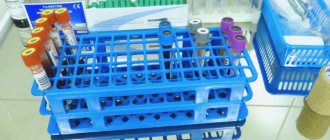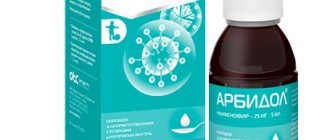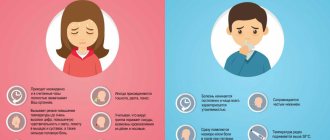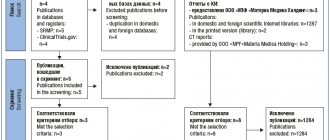The rise in the incidence of SARS-CoV-2 has caused a surge in demand for drugs. And some of the most popular products are those that boost immunity and help the body resist the virus. Our article will tell you which drugs in this group a pharmacist can confidently offer if requested, and how to justify the recommendation.
It should be said right away that there is no specific prevention of COVID-19 [1]. There are no drugs that have been proven in studies to prevent infection by SARS-CoV-2, at least as of early April 2021. But this does not mean that today we are completely unarmed against infection. The virus is still very young. While scientists around the world are working to create new drugs for the treatment and prevention of COVID-19, doctors are using long-known drugs, selected empirically, and gaining their own experience of successful or not so successful therapy.
Antivirals and immunomodulators to enhance immune defense
One striking example is the antiviral drug umifenovir.
For the first time, encouraging clinical experience with its use was reported by Chinese doctors who published an article in The Lancet on the therapeutic strategy for treating COVID-19 in several clinics [2]. It talks about the use of umifenovir [Arbidol], approved for the treatment of influenza in China, for coronavirus pneumonia. The basis for this prescription was the results of in vitro studies demonstrating the inhibitory effect of umifenovir on SARS [3]. Let us remember that SARS is the closest relative of the coronavirus SARS-CoV-2, the causative agent of severe acute respiratory syndrome, which caused an epidemic in 2002. It is known that the genome of SARS-CoV-2 is 79.5% identical to the genetic code of SARS [4]. Read about the biology of coronavirus here.
The preventive capabilities of umifenovir are due to interferon-inducing activity, stimulation of cellular and humoral immunity. Among its indications is the prevention and treatment of influenza A and B and other acute respiratory viral infections in children from two years of age and adults.
Currently, umifenovir and two other antiviral drugs not registered in the Russian Federation - remdesivir and favipiravir - are undergoing clinical trials in patients with COVID-19. While remdesivir and favipiravir are new and insufficiently studied, umifenovir has quite a wealth of experience in clinical use. What's more, it is available over-the-counter and is generally well tolerated, so it can be recommended to consumers.
What can you offer?
Along with umifenovir for the prevention of acute respiratory viral infections, including COVID-19, other over-the-counter drugs can be recommended - immunomodulators and immunostimulants, for example, azoximer bromide in the form of tablets and suppositories (used in adults and children from three years of age for the treatment and prevention of acute and chronic respiratory diseases in the stage of exacerbation and remission); an antiviral drug that induces the production of interferons, kagocel (prevention and treatment of influenza and other acute respiratory viral infections in adults and children over three years of age), meglumine acridone acetate in tablet form (prevention and complex therapy of influenza and other acute respiratory viral infections in adults and children over four years of age), tilorone tablets 125 mg (prevention and complex therapy of influenza and ARVI in adults and children from seven years of age).
What should you tell your visitor about?
Drugs with antiviral and immunomodulatory properties help resist infection and the development of respiratory viral infections, increasing the immune response and preventing viral replication. And although there is no proven data on their effectiveness against the causative agent of the current pandemic, SARS-CoV-2, it is nevertheless appropriate to take drugs from this group.
Dear patients!
Nature has created many effective ways to protect against the flu. Man also adds to this list by creating medicines and vaccines. To give a worthy rebuff to the influenza virus or significantly weaken its impact on the body, you need to skillfully apply all currently known methods, combine folk remedies for fighting and preventing influenza with medications. This topic becomes especially relevant during the off-season and during epidemics.
Measures and types of flu prevention
There are 3 types of prevention:
- specific, aimed at combating a specific virus using vaccines;
- prevention using medicinal antiviral drugs;
- non-specific, based on compliance with the rules of public and personal hygiene, strengthening the immune system and increasing the body's resistance to stress.
Any person who spends some time in society, in contact with colleagues at work, classmates at school, classmates in kindergarten, is at risk of contracting the flu. Therefore, the most effective method of prevention - limiting contacts with sick people and with all other (possibly healthy) people - is practically impossible. Therefore, all known prevention methods are aimed at ensuring that a person prepares his body to meet the virus.
Vaccinal prevention
The most reliable preventive measure against influenza is vaccination. Particles of a weakened or killed virus enter the human body with a vaccination, starting the process of producing antibodies against this strain of the virus. This immunity should last for a period of 6 months to 1 year.
It is better to get vaccinated not at the height of the epidemic, but about a month before it starts, so that the body has time to develop a strong enough defense mechanism against the influenza virus.
There are categories of people who are recommended to be vaccinated without fail. Due to the nature of their work, they come into contact with a large number of people, with the sick or have any diseases in which the flu can occur in a very severe form, creating an additional burden on an already weakened body. At high risk are:
- children under 6 years of age;
- medical workers;
- teachers and teachers;
- workers of preschool and other children's institutions;
- people over 65 years of age;
- people of any age suffering from cardiovascular, pulmonary and various chronic diseases.
The average risk group includes:
- children from 6 to 15 years old;
- adults over 50 years of age;
- service workers;
- people involved in the transport sector;
- employees of military units;
- pregnant women in the 2nd and 3rd trimester of pregnancy.
The goal of influenza vaccination is not to eliminate the virus (it is impossible to completely destroy the influenza virus), but to reduce the incidence of morbidity and mortality due to the complicated course of the disease.
Many cannot get vaccinated. It is contraindicated:
- people with allergies to chicken protein;
- children under 6 months of age;
- citizens with chronic diseases in the acute stage;
- anyone who had an allergic reaction to the vaccine during a previous vaccination.
In addition, the vaccine protects against several of the most common strains of the virus, and during an epidemic, a completely new type of influenza may spread, and then the acquired immunity will not work. In addition, not everyone has time or wants to get vaccinated against the flu. Therefore, the effectiveness of the flu vaccine is 15–20%. This does not mean that there is no need to get vaccinated.
If you are in a high-risk group and have been vaccinated, there is a very good chance that you will be among the lucky 20% who are free from the flu. For others, there are other methods of prevention.
Drugs to prevent influenza virus
Drugs for the prevention of influenza can be divided into 2 groups:
- antiviral agents: arbidol, remantadine, amantadine, adapromine, oxolinic ointment, Tamiflu, etc.;
- interferons (gripferon, alpharon, interferon alpha) and interferon inducers (amixin, cycloferon, kagocel, etc.).
Preventing influenza with antiviral drugs during an epidemic is ineffective. They cannot be used as an emergency remedy against the virus. A single dose is also useless. Antiviral drugs must be taken according to a certain schedule in anticipation of the viral season and at the beginning of the disease. The dosage and regimen are determined by the doctor.
The effectiveness of such prevention is approximately 15%. After all, the action of these drugs is directed against a certain type of virus. Contraindications to their use are children under 1 year of age and pregnancy.
Relatively new antiviral drugs are the neurominidase inhibitors Relenza and Tamiflu. They are effective for the treatment and prevention of all types of influenza, provided the first dose is taken no later than 2 days from the onset of the first symptoms.
The use of interferons and their inducers allows the body to create intracellular immunity to viruses and helps improve immunity. But taking them without studying the patient’s immune status is unsafe, since long-term use can lead to a decrease in the body’s protective functions.
Nonspecific measures to prevent influenza
This type of prevention includes various methods and means. These include:
- compliance with the rules of public and personal hygiene;
- limiting contact with people sick with influenza;
- increasing the body's resistance and resistance to stress by maintaining a healthy lifestyle, proper balanced nutrition, hardening and playing sports;
- taking immunostimulants, for example, Immunal.
In order not to get sick with the flu during an epidemic and not to infect others, everyone should follow simple rules of hygiene:
- avoid direct contact with a sick person;
- wear a sterile mask in crowded places, in the presence of people with the flu, and also if you are infected yourself, you need to change the mask at least after 2 hours of use;
- when sneezing and coughing, cover your nose and mouth with disposable tissues;
- wash your hands often with soap;
- Regularly ventilate the room and do wet cleaning.
We have prepared information for you where we describe in detail what ARVI and influenza have in common and what you should pay attention to if you suspect the disease.
Also read about acute respiratory viral infection: how to diagnose it and protect your body
Nonspecific prevention is mostly based on maintaining a rational lifestyle. Taking vitamin supplements in the autumn-winter period, hardening, good nutrition, proper sleep and rest patterns, moderate physical and mental activity, playing sports, all these are simple and important ways to protect your body from the influenza virus.
Traditional medicine is also important. Onions, garlic, mint, rose hips, sea buckthorn, cranberries, lingonberries, and lemon have excellent antiviral properties. Based on various herbs, berries, fruits and vegetables, you can prepare a medicine for any disease and a remedy to improve immunity.
The variety of methods and means of preventing the influenza virus does not protect us from encountering it, but gives us the opportunity to prepare for the next outbreak of the disease and give it a worthy rebuff. Even if you catch the flu and follow these measures, you can experience a mild form of the virus and avoid complications. And the comprehensive and competent use of all methods by each individual will help maintain the health of the entire population as a whole.
Interferon preparations for the prevention of coronavirus
Another group of drugs that can be offered to prevent respiratory infections, including COVID-19, are interferons. The activity of parenteral interferon alpha-2a has been demonstrated against MERS-CoV, the coronavirus that causes severe Middle East respiratory syndrome, an outbreak of which was reported in 2012 [5]. The effectiveness of interferon has also been studied during SARS infection: studies published in 2009 confirmed that interferon alpha promotes the production of its own interferon, the production of which is blocked by coronavirus [6].
The domestic temporary recommendations of the Russian Ministry of Health on COVID-19 describe the intranasal administration of a solution of recombinant interferon alpha for the prevention of the disease in both children and adults, including pregnant women, as well as the treatment of mild forms in patients under 60 years of age without concomitant chronic diseases [1 ].
The mechanism of the antiviral and immunomodulatory action of interferons is based on the ability to prevent viral infection of cells and suppress viral replication. In addition, interferon alpha enhances the phagocytic activity of macrophages and increases the secretion of antibodies.
What can you offer?
As drugs to enhance the immune response, including during the COVID-19 pandemic, nasal drops or a nasal metered spray of interferon alfa-2b can be recommended.
What should you tell the buyer?
Preparations of human recombinant interferon alpha-2b have antiviral and immunomodulatory properties and are used for the prevention and treatment of acute respiratory viral infections. They are usually well tolerated and are approved for adults, including pregnant and lactating women, and children, including young children.
Therefore, during a pandemic, it is advisable to prevent COVID-19 disease with interferon alpha-2b preparations. If necessary (for example, if the pandemic drags on), the preventive course can be repeated.
Bibliography:
- Prevention, diagnosis and treatment of new coronavirus infection [COVID-19]. Temporary guidelines. Version 5
- Zhang J. et al. Therapeutic and triage strategies for 2019 novel coronavirus disease in fever clinics //The Lancet Respiratory Medicine. 2020
- Khamitov RA, Loginova S, Shchukina VN, Borisevich SV, Maksimov VA, Shuster AM. Antiviral activity of arbidol and its derivatives against the pathogen of severe acute respiratory syndrome in the cell cultures. Vopr Virusol 2008
- Zhou P. et al. A pneumonia outbreak associated with a new coronavirus of probable bat origin //Nature. 2020
- Omrani AS et al. Ribavirin and interferon alfa-2a for severe Middle East respiratory syndrome coronavirus infection: a retrospective cohort study //The Lancet Infectious Diseases. 2014
- Kuri T. et al. Interferon priming enables cells to partially overturn the SARS coronavirus-induced block in innate immune activation //The Journal of general virology. 2009; 90 : 2686
- Jin YH et al. A rapid advice guideline for the diagnosis and treatment of 2021 novel coronavirus (2019-nCoV) infected pneumonia (standard version) //Military Medical Research. 2020
We collect all materials about COVID-19 that are useful to pharmaceutical workers in a special section of the website.
The most important things on the topic: hand antiseptic, hand hygiene, disinfection in the pharmacy, rules for using masks, myths and facts about coronavirus, pharmaceutical consultation on antipyretic and hypotensive drugs during a pandemic.
We answer questions live on VKontakte: https://vk.com/pharmznanie
You can discuss the latest news with all your Russian colleagues in chats:
- Telegram: https://tglink.ru/pharmorden
- VKontakte: https://vk.me/join/AJQ1d_D2XxaDy9IdzL0e6EqH
Interested in the article? You can find out even more in the News section
Why is flu prevention important?
The danger of the disease lies in the risk of possible complications, which include: pneumonia, meningitis, myocarditis, UTI, exacerbation of chronic diseases, cerebral edema. The toxic effect of influenza is a severe blow to human health.
That is why pay special attention to preventive measures, the goals of which are to prevent infection, increase the body’s protective functions and make the course of the disease easier.
Prevention of any ARVI involves an extensive set of measures, including personal hygiene, taking vitamins and antiviral agents. Specific prevention includes routine vaccination to prevent mass morbidity. Nonspecific – these are actions aimed at increasing a person’s immune status.
Nonspecific prevention measures
This type of measures is aimed at increasing immunity, generally strengthening the body, and creating a favorable environment.
Try not to be in crowded places unless necessary. Avoid visiting theaters, cafes, and shopping centers. Dress appropriately for the weather, avoiding overheating and hypothermia.
To prevent influenza:
- Eat right. The menu should contain a sufficient amount of protein foods: poultry fillet, fish, dairy products. Avoid fast food and processed foods.
- Temper your body. In the hardening process, gradualness and timeliness are important. Take air baths, rub vigorously with a damp towel until the skin turns red. Pouring your feet with warm water at first, slowly reducing the temperature to cold is effective.
- Walk outdoors more often: in the forest, parks. Follow a daily routine.
- Keep your place of residence tidy. Regular wet cleaning and ventilation are important. The procedures reduce the amount of viruses in the air. Open the windows for 25 minutes up to three times a day.
- Humidify the indoor air. This will help avoid drying out of the mucous membranes of the nose and oropharynx and support local immunity. You can use a humidifier or cover the batteries with wet towels.
- Maintain personal hygiene. Wash your hands or treat them with an antiseptic after visiting public places, and do not touch your eyes, nose, or mouth with dirty hands. Avoid handshakes.
- Use a mask. It should be worn by an infected person to prevent saliva particles from entering the surrounding area when coughing or sneezing.
- Maintain a distance of at least 1 m when visiting shops and pharmacies.
- Rinse your nose with saline solution. This will moisturize the mucous membranes and help wash away viruses that have entered the nose. You can prepare the solution yourself or buy it ready-made at the pharmacy.
In order to maintain the body's performance, you can take multivitamins and special medications.
Vaccination as a method of prevention
According to the WHO, vaccination reduces the incidence rate by 90%. A vaccine is a specific prevention that involves the introduction of a virus or part of it into the body to stimulate the production of antibodies. Immunity is formed on average in 14 days. Antibodies prevent viruses from multiplying and becoming infected.
The effectiveness of vaccination to prevent influenza has been proven by numerous studies. It promotes:
- Reducing the incidence of influenza.
- Reducing complications after infection.
- Fast recovery and milder course of the disease.
- Reducing mortality from the disease.
It is better to get vaccinated in early autumn, since the flu epidemic occurs between November and March.
The vaccine can be live or inactivated (killed).
A live vaccine cannot cause disease; it is a weakened virus. Sprays in the nose. The percentage of long-term immune protection is high, as is the likelihood of adverse reactions.
Inactivated vaccines come in whole, split and subunit forms. Whole grains provide more stable immunity. Consist of purified, undestroyed virus bodies. Cleaved - contain different structures of the virus. These are the Vaxigrip and Begrivak vaccines. Subunits consist only of proteins that are located on the surface of the virus. For example, Grippol, Influvac.








